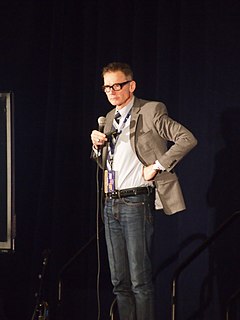A Quote by Mona Simpson
I didn't know much about computers. I still worked on a manual Olivetti typewriter.
Related Quotes
It took me thirty-six years; and, in some fifty stories, ranging in length from short-shorts to novels, I think I must have touched, in one way or another, on every aspect of computers and computerization. And (mark this!) I did it without ever knowing anything at all about computers in any real sense. To this day, I don't. I am totally inept with machinery... on my typewriter I turn out books at the contemptible rate of one a month
When I worked with General Electric, again this was soon after the Second World War, you know, I was keeping up with new developments and they showed me a milling machine and this thing worked by punch cards - that's where computers were at that time, and everybody was sort of sheepish about how well this thing worked because in those days machinists were treated as though they were great musicians because they were virtuosos on these machines.
I buy a tractor two years ago, and four-fifths of the tractor manual is about not tipping over, not raising the bucket high enough to hit high-tension wire... not killing yourself, basically. And in that manual, I found out - and it cost me a thousand dollars - that when the tractor is new, 10 hours into use of the tractor, you have to re-torque the lug nuts. If you don't, you will oval the holes. This is buried between the moron warnings. I never found it. I take the tractor in for its regular servicing, and they say my wheels are gone. How am I supposed to know that? "It's in the manual."







































